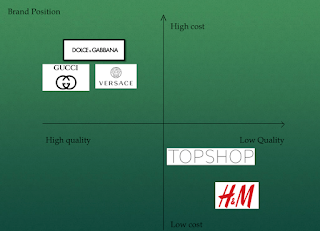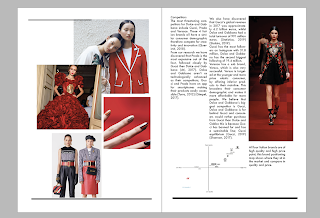How much longer can luxury brands ignore the changing fashion landscape?
Links:
https://hbr.org/2016/02/luxury-brands-can-no-longer-ignore-sustainability
In the past the fashion industry hasn't directly been associated with concerns for environmental impacts and human rights.
First of all:
The laws are changing, there was a new law in 2015- The modern slavery act in the UK. This law requires companies doing business in Britain to publish a board-approved, public annual slavery and human trafficking statement. This kind of law clearly drives much more transparency in the industry. 71% of UK retailers and suppliers think its likely there are slaves in their supple chain.
Although this does not directly link to Dolce and Gabbana as they are not a UK retailer it is putting a lot more exposure into the industry and it won't be long un til consumers want to know that the brand has no connections with slavery etc or will only buy from brands to publicly announce that it has no involvement.
Secondly, The indirect and more powerful pressures: social norms are changing. Celebrities set an example with sustainability and are more invested with sustainability than ever before.
On a larger scale the expectations on how companies should act. Millennials and Gen Z's have different views on how companies should act. 88% of UK and US millennials believe brands need to do more good and not just "less bad".
This research shows that as many luxury brands are conforming to meet the needs of consumers and the laws against slavery that more luxury brand will start to follow. Brands such as Gucci who have a sustainable outlook ( Equilibrium line) are following these guidelines making them more popular with consumers. Dolce and Gabbana should follow in this direction as to please younger millennial consumers.
https://hbr.org/2016/02/luxury-brands-can-no-longer-ignore-sustainability
In the past the fashion industry hasn't directly been associated with concerns for environmental impacts and human rights.
First of all:
The laws are changing, there was a new law in 2015- The modern slavery act in the UK. This law requires companies doing business in Britain to publish a board-approved, public annual slavery and human trafficking statement. This kind of law clearly drives much more transparency in the industry. 71% of UK retailers and suppliers think its likely there are slaves in their supple chain.
Although this does not directly link to Dolce and Gabbana as they are not a UK retailer it is putting a lot more exposure into the industry and it won't be long un til consumers want to know that the brand has no connections with slavery etc or will only buy from brands to publicly announce that it has no involvement.
Secondly, The indirect and more powerful pressures: social norms are changing. Celebrities set an example with sustainability and are more invested with sustainability than ever before.
On a larger scale the expectations on how companies should act. Millennials and Gen Z's have different views on how companies should act. 88% of UK and US millennials believe brands need to do more good and not just "less bad".
This research shows that as many luxury brands are conforming to meet the needs of consumers and the laws against slavery that more luxury brand will start to follow. Brands such as Gucci who have a sustainable outlook ( Equilibrium line) are following these guidelines making them more popular with consumers. Dolce and Gabbana should follow in this direction as to please younger millennial consumers.



Comments
Post a Comment